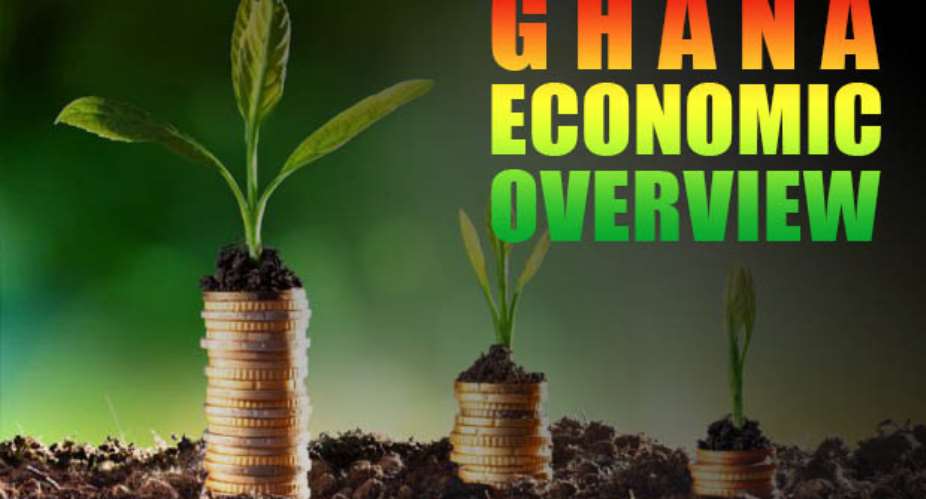The democratic system in Ghana is one of the most stable governments in Africa. Long-term democracy helps maintain a higher level of security that is common with most other countries in the region.
In the last elections held in 2016, the opposition NPP won the pro-reform program, while in the area of finance, the government is successfully implementing fiscal consolidation and is also taking measures to more effectively collect taxes.
However, the living conditions of the population have not improved much despite the discovery of oil. The situation has, therefore, led to the public’s criticism. Overall, it is relatively positive, as the unpopular fiscal measures adopted by the government were inevitable in view of the high government debt.
Indeed, between 2006 and 2016, there has been a rapid increase in government debt to-GDP ratio peaked at over 73% of GDP. Since then, due to faster economic growth and fiscal consolidation, the government’s debt is gradually declining relative to GDP, falling to 67% of GDP in 2019.
However, the costs of commodities, including basic necessities, are very high and about one-third of budget revenue is needed to cover government debt interest every year.
Elections 2020 is underway, regardless of the results of the parliamentary elections; there is always an opportunity to encourage long-term foreign investment and their efforts to create a favorable business environment.
As far as the macro-economic situation is concerned, it has been gradually stabilizing since 2017 and the outlook is now rather positive. The average GDP growth is expected to be 6 to 7% per annum in 2019 and beyond.
Inflation has stabilized at single-digit levels, and the domestic currency, cedi, has more or less stabilized despite continued depreciation. Yet the fundamental structural problem of the Ghanaian economy remains the same.
The main problem is the lack of diversification and dependence on commodity exports. Although the diversity of Ghana's exported commodities is relatively high and Ghana exports oil in addition to gold and cocoa, the industrial base is still lagging behind.
Ghana is still more focused on exports of raw commodities than products with higher added value. Another major problem is the long-term lack of electricity, which hampers faster economic development.
In this respect, however, the government has already taken measures and, in particular, the launch of natural gas extraction at the Sankofa oil field in July 2018, and its supply to Ghanaian power plants may stabilize electricity supplies and significantly improve the economy.





 Akufo-Addo spotted ordering chiefs to stand for his handshake
Akufo-Addo spotted ordering chiefs to stand for his handshake
 Akufo-Addo ‘disrespects’ every chief in Ghana except Okyenhene — NDC Communicato...
Akufo-Addo ‘disrespects’ every chief in Ghana except Okyenhene — NDC Communicato...
 Supreme Court clears way for dual citizens to hold key public positions
Supreme Court clears way for dual citizens to hold key public positions
 Be transparent, don’t suppress the truth – Prof. Opoku-Agyemang to Jean Mensa
Be transparent, don’t suppress the truth – Prof. Opoku-Agyemang to Jean Mensa
 ‘I won’t tell the world I was only a driver’s mate during challenges’ – Prof Jan...
‘I won’t tell the world I was only a driver’s mate during challenges’ – Prof Jan...
 We’ll prosecute corrupt officials of Akufo-Addo’s govt – Prof Jane Naana
We’ll prosecute corrupt officials of Akufo-Addo’s govt – Prof Jane Naana
 [Full text] Acceptance speech by Prof Jane Naana Opoku-Agyemang as 2024 NDC Runn...
[Full text] Acceptance speech by Prof Jane Naana Opoku-Agyemang as 2024 NDC Runn...
 Election 2024: Don’t be complacent, we haven’t won yet – Asiedu Nketia cautions ...
Election 2024: Don’t be complacent, we haven’t won yet – Asiedu Nketia cautions ...
 Election 2024: Stop fighting over positions in Mahama’s next govt – Asiedu Nketi...
Election 2024: Stop fighting over positions in Mahama’s next govt – Asiedu Nketi...
 Prof Jane Naana Opoku-Agyemang will restore dignity of vice presidency – Fifi Kw...
Prof Jane Naana Opoku-Agyemang will restore dignity of vice presidency – Fifi Kw...
